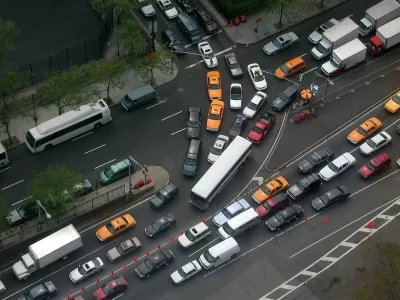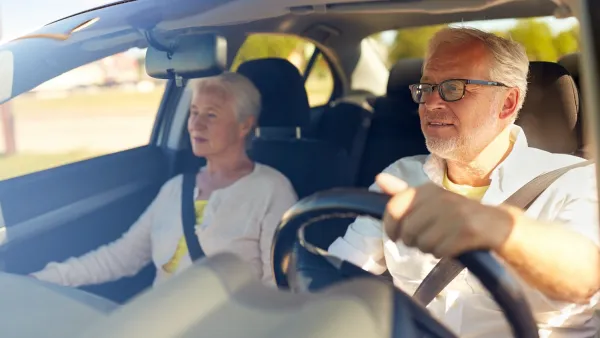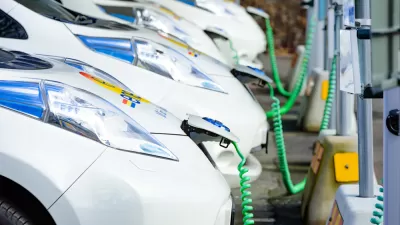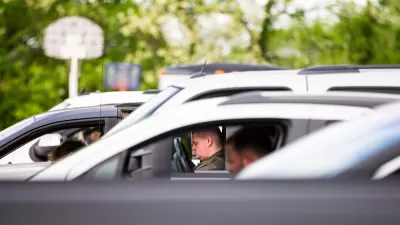Encouraging Americans to drive less — and supporting cities where it’s possible to do so — could save the country trillions more than just electrifying the transportation sector.

A new study finds that reducing private car ownership and miles driven in the United States could save a collective $6.2 trillion more than just focusing on shifting to electric vehicles.
As Kea Wilson explains in Streetsblog USA, the report from the Union of Concerned Scientists “states that giving Americans the freedom to choose among multiple modes of travel is "key to the climate transition" — and that making ‘visionary but feasible’ changes, like shifting land use patterns and investing in walking, biking, and transit, could get our country to the critical net zero milestone.”
According to the report, reducing vehicle miles traveled by roughly 27 percent by 2050 could eliminate the need for $201 billion in new infrastructure and save the nation $128 billion in public health costs. “And then there's the staggering costs of car crash deaths themselves, 250,000 of which could be avoided if VMT was cut, along with 3.7 million crash injuries that often cost far more than a fatality.”
Americans would also save almost $6 trillion on car payments, fuel, insurance, and other costs associated with vehicle ownership.
Kevin Shen, the lead author of the report, highlights the need for options, saying, “if you look into the more recent research [about] what actually benefits people in the U.S., it is not automobility. Providing a multitude of options — that's what actually benefits people.”
FULL STORY: Report: Confronting Car Dependence Won’t Just Help With Climate Change; It’s a $6.2 Trillion Opportunity

Maui's Vacation Rental Debate Turns Ugly
Verbal attacks, misinformation campaigns and fistfights plague a high-stakes debate to convert thousands of vacation rentals into long-term housing.

Planetizen Federal Action Tracker
A weekly monitor of how Trump’s orders and actions are impacting planners and planning in America.

San Francisco Suspends Traffic Calming Amidst Record Deaths
Citing “a challenging fiscal landscape,” the city will cease the program on the heels of 42 traffic deaths, including 24 pedestrians.

Defunct Pittsburgh Power Plant to Become Residential Tower
A decommissioned steam heat plant will be redeveloped into almost 100 affordable housing units.

Trump Prompts Restructuring of Transportation Research Board in “Unprecedented Overreach”
The TRB has eliminated more than half of its committees including those focused on climate, equity, and cities.

Amtrak Rolls Out New Orleans to Alabama “Mardi Gras” Train
The new service will operate morning and evening departures between Mobile and New Orleans.
Urban Design for Planners 1: Software Tools
This six-course series explores essential urban design concepts using open source software and equips planners with the tools they need to participate fully in the urban design process.
Planning for Universal Design
Learn the tools for implementing Universal Design in planning regulations.
Heyer Gruel & Associates PA
JM Goldson LLC
Custer County Colorado
City of Camden Redevelopment Agency
City of Astoria
Transportation Research & Education Center (TREC) at Portland State University
Jefferson Parish Government
Camden Redevelopment Agency
City of Claremont





























